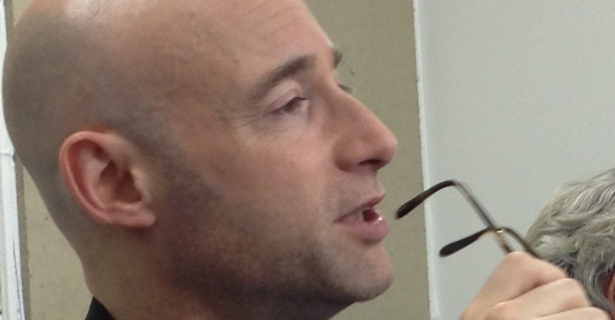Noted Journalist and Author Matt Bai (A’90, EPIIC’90) spoke to this fall’s Program for Narrative and Documentary class about the importance of using stories to reach people, especially in today’s fast-paced, sound-bite-based information environment.
Matt, who is on a book tour for his new book, All the Truth Is Out: The Week that Politics Went Tabloid, talked to the class about how he began writing character-based political stories, his influences, such as the author Richard Ben Cramer (What It Takes), and the importance of the writer getting out of the way of the story.
He emphasized that stories offer the opportunity for people to learn, understand and reflect – they are what reach people, what people internalize differently than other mediums.
As students learning this craft, he advised the class to wrestle with the contradictions in their stories, to learn about the complexities of their stories, and to intellectually grapple with them. When asked about running into roadblocks when working on a story, Matt advised the students to “have faith that life is interesting” and not to get stuck thinking there’s nothing there to tell, because “there’s always something to tell, always something more interesting than you thought.”
When discussing how he approaches his stories, he said he always thinks about a camera lens: who is it focused on; if it’s taken off the main character(s), who does it rest on; if it pans out, who is in the frame; and if it zooms in, what is that specific focus.
Reflecting on his path to where he is now, he said that nothing like the Program existed when he was an undergraduate and that the type of class and assignments the students had in PNDP were ones he only received when he went to the Columbia School of Journalism.
Junior Anthropology Major Menglan Chen said, “I really appreciate how he values the story as a subtle but powerful form through which effective communication could be achieved. Also he really gave some insightful comments on the group project we are doing: Wonderland. This project is a project about past and future, about dissolution and transition, about a historical narrative contained in the most neglected places.”

